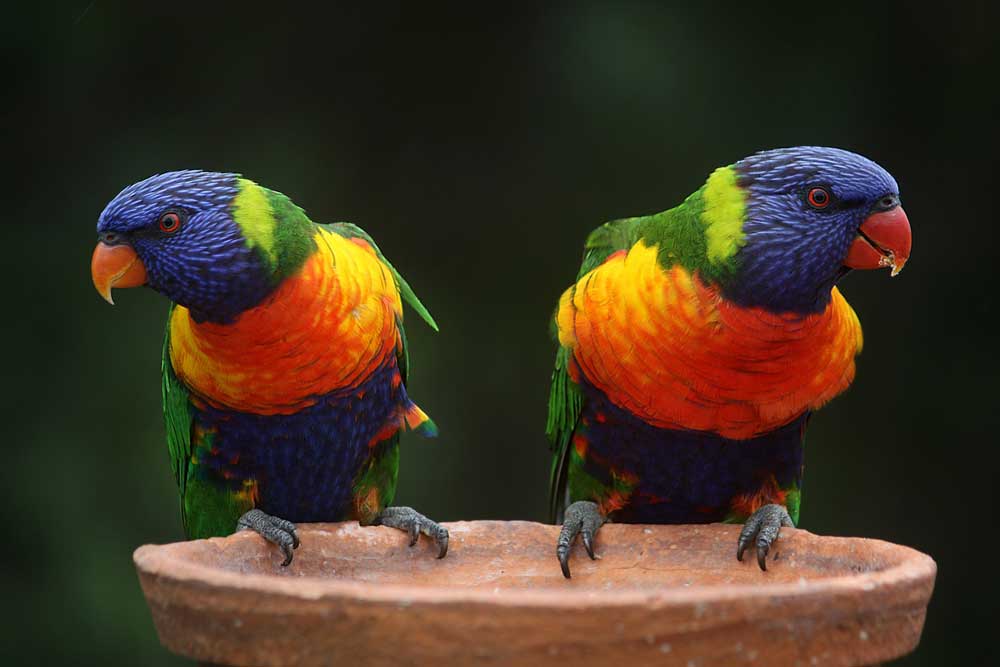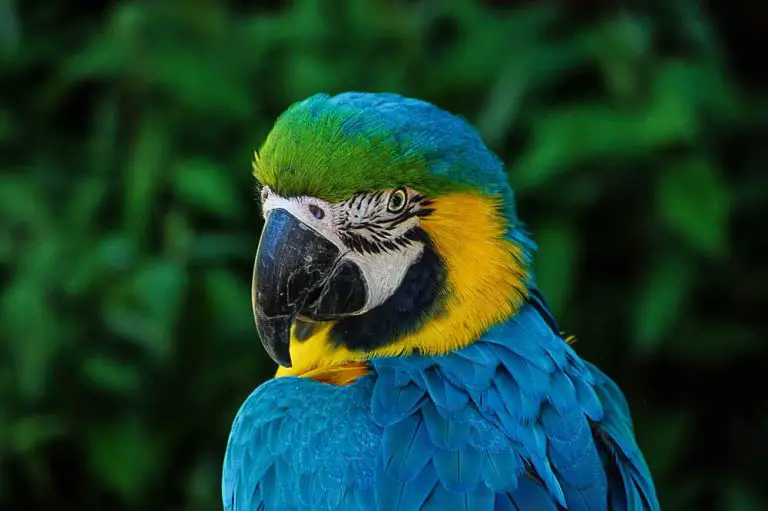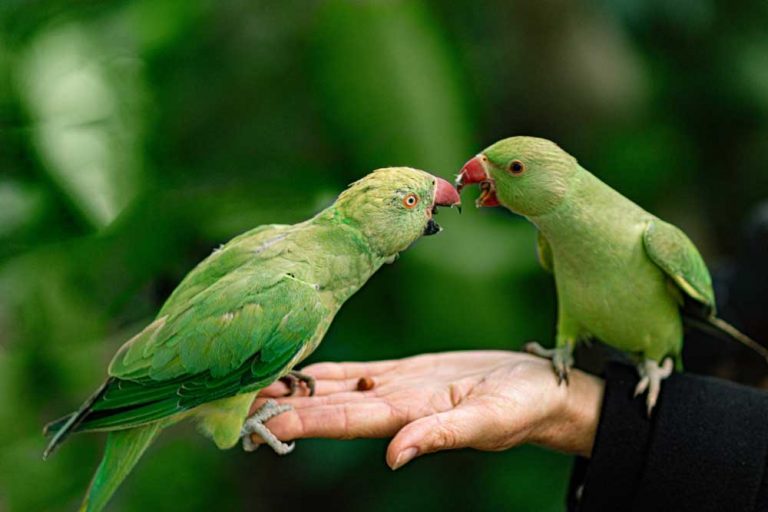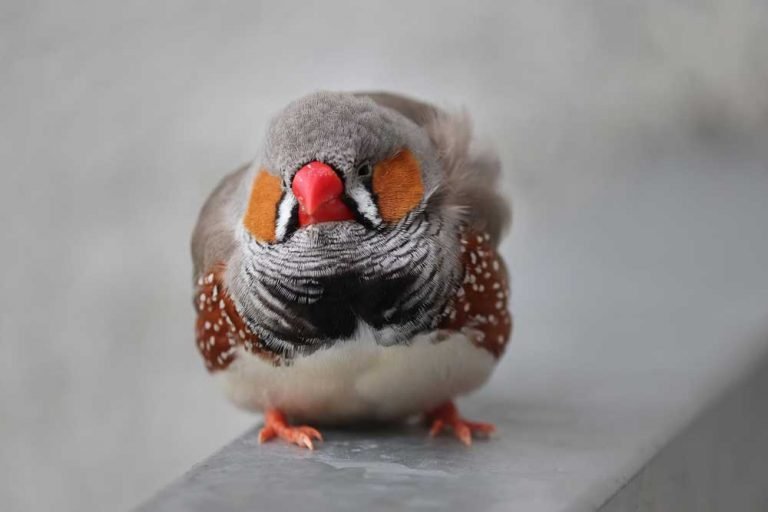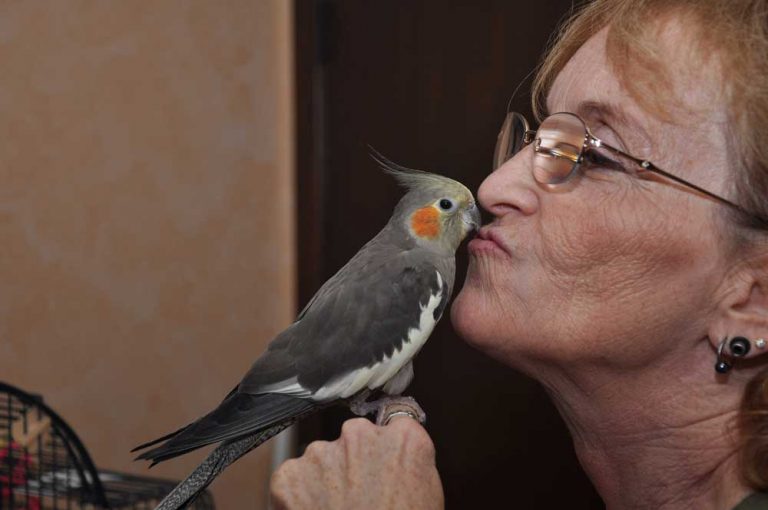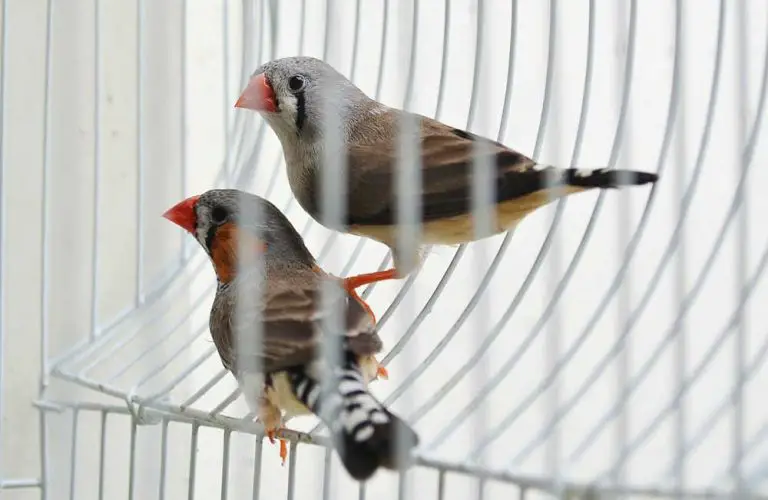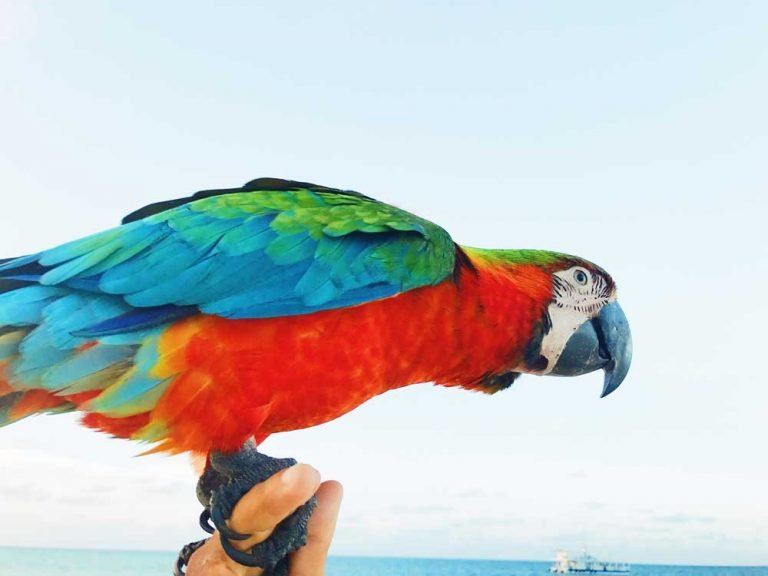Can Parrots Eat Watermelons? [Feeding Guide!]
Parrots, like any other living creature, also require a healthy and balanced diet. They are omnivores and thus can eat both meat and plant-based products. But they are also fond of fruits and seeds. Because of their strong and pointed beaks, they can cut open the tough shell of seeds readily.
For ensuring overall development, their meal should contain both fruits and vegetables. But ensure that the types of fruit you are offering are safe to consume. Colorful, attractive fruits like watermelons are rich in nutrients.
Can parrots eat watermelons?
Parrots are very fond of watermelons. They are colorful, nutritional, and also contain seeds. Watermelons are safe for a parrot’s consumption. Its water content also helps in maintaining hydration. Thus, one fruit serves quite a few purposes. Watermelon seeds and the rind is also consumable for parrots but in a balanced quantity.
Nutritional Value and benefits in Watermelons
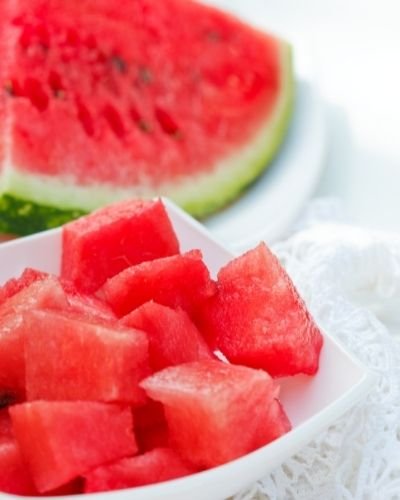
Watermelon, due to its water content, provides enough hydration to parrots. Those living in dry areas or has water scarcity can rely on watermelons.
- Carbohydrate content in watermelons is in the form of simple sugars. Thus, they are easy to digest and light on a parrot’s stomach.
- 92% of its total weight consists of water. Regular consumption helps in maintaining water concentration in a parrot. It is rich in electrolytes and promotes a healthy digestive system.
- Watermelons also contain sufficient amounts of vitamins, namely Vit-A and Vit-B6. Apart from it, there is also the presence of amino acids and antioxidants. It helps the body function efficiently by enhancing new cells’ formation and repair of damaged cells.
- Since it does not contain fat, a parrot does not increase its weight. Moreover, watermelons serve as a treat during summers.
- The bright red part of watermelons is rich in lycopene and beta carotene. At the same time, the white part contains a high concentration of amino acids. Thus, the entire watermelon is beneficial for consumption.
- Seeds of watermelons are not unhealthy either. They, too, are nutritious and safe for your parrot’s consumption. With a balanced concentration of proteins and vitamins, watermelon seeds also form an ingredient in a parrot’s meal.
- Vitamin C strengthens the immune system, and choline reduces cellular swelling.
- Magnesium promotes bone formation as well as ensures strong and long feathers.
Watermelon seeds are safe for parrots
Whenever you provide your parrot watermelon, they will first eat the seeds. Since they have a strong jaw and pointed beak, seeds are easier to open. They use their beak to cut open the seeds to retrieve the soft part within. Since parrots mostly stay in cages, they require enough fruits and seeds for consumption. A healthy diet will help them develop the body from within.
It is advisable to cut a big slice of watermelon into smaller pieces. This will make the ingestion process for parrots effortless. Since they use their beaks to remove seeds first, the softer red portion disperses all around. Hence, most of the fruit falls on the ground, which parrots are unable to hold with its beak.
Instead of providing the watermelon with seeds, you can extract the seeds beforehand. Use a bowl to accumulate the extracted seeds. It will be convenient for your parrot to eat each seed at a comfortable pace.
If your parrot is an adult one or in its tender age, soaked seeds will be easier to break with their developing beaks and delicate jaws. However, keep a check or supervise while a parrot is consuming seeds. Seeds at times may also have choking hazards.
Watermelon rind
The white part after the fleshy and juicy reddish pink portion in the watermelon is the watermelon rind. Although this part also contains enough nutrients, it also has harmful chemicals.
If you are using store-bought watermelons for your parrot, it is better to discard the rind. Watermelons grown for commercial purposes accumulate the herbicides and pesticides in the rind. Thorough washing may not remove all of it.
Organic fruits do not contain any such harmful chemicals and grow in natural habitats. Organic watermelon rinds are safe for parrots and easy on digest.
Quantity of watermelon in a parrot’s diet
For ensuring a healthy parrot, it is essential to provide healthy food. A balanced food will contain the optimal amount of all the necessary ingredients. Concentrating on only one type of food is not healthy or beneficial. Below mentioned points will help you form a balanced schedule for a parrot’s meal.
Nutritional balance:
Although watermelons are healthy and nutrient-rich fruit, it cannot be the main component. It is essential to form a balance in a parrot’s meal. Both fruits and vegetables are vital. Watermelons should be one of the components of the entire meal. Avoid providing it in every meal of the day. Once in the morning is sufficient as per a parrot’s body size and requirement. This process will encourage them to eat the entire meal.
Combination:
Instead of providing only one fruit in the meal, try mixing a combination of a few. Each day you can combine watermelons along with apples, apricots, and papaya. It will ensure varied nutritional content in each meal.
Age:
The quantity of watermelon that you provide should not be the same all year long. After birth, the first few months, the digestive system does not develop to its full potential.
Try providing a minimal quantity of watermelon to help in enhancing the digestive system. It will also keep the body hydrated. Similarly, an old-age parrot will require an average quantity of watermelon to provide enough energy to the body.
After this detailed discussion, it is evident that watermelons are safe for parrots. It has quite a few beneficial nutrients.
Water content in watermelons keeps them hydrated, especially in areas with less water. Both watermelon seeds and rind are safe to consume.
However, prefer using organic fruits and vegetables as they are free from chemicals, preservatives, and artificial colors. It is important to supervise the eating habits of a parrot.
While providing seeds, supervision will ensure immediate action in case of choking. Thus, a parrot’s meal should consist of a balanced amount of different fruits, vegetables, and seeds.
- Can Parrots Eat Watermelons? [Feeding Guide!]
- Can Parrots Eat Bananas? [Feeding Guide!]
- Do Budgies Get Along with Cockatiels? [What You Should Know!]
- Are Parrots Smarter than Dogs? [Know The Truth!]
- Do Parrots Get Along With Dogs And Cats?

